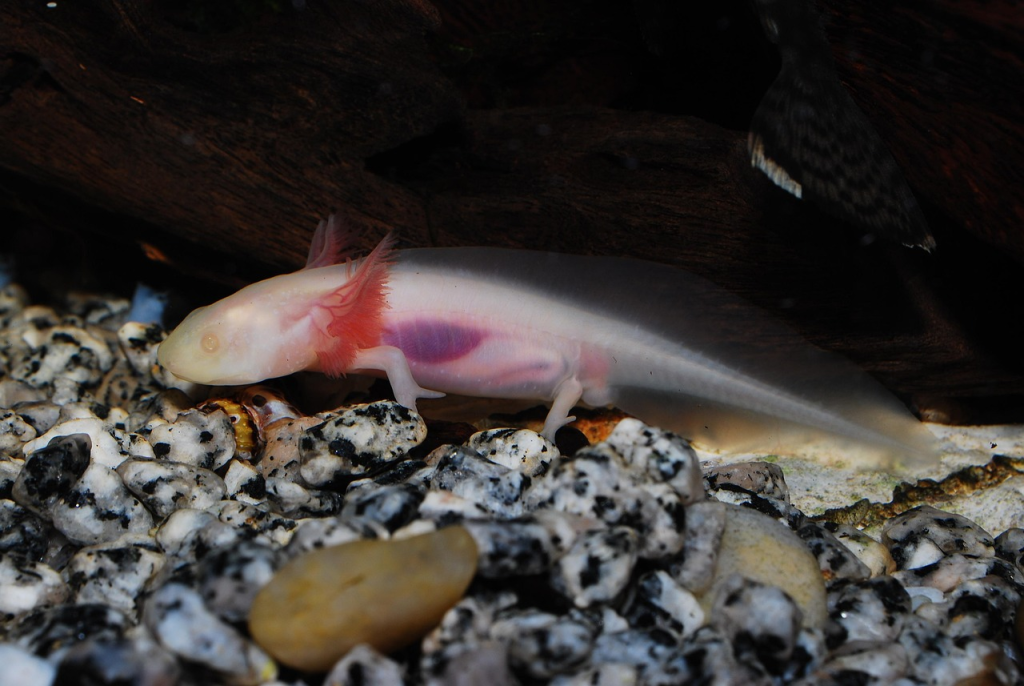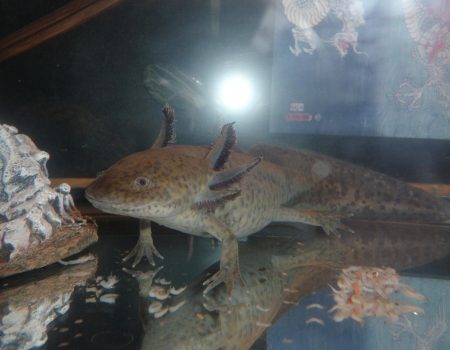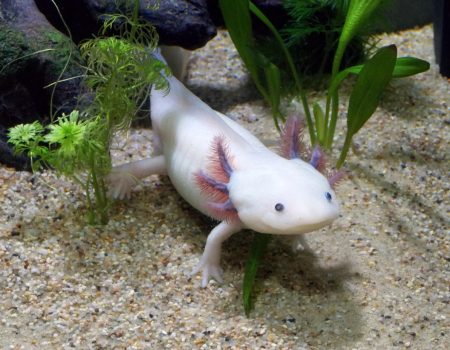Are Axolotls Legal or Illegal in Maryland? Everything You Need to Know
You’ve probably seen axolotls online or at pet stores and thought about getting one. These little aquatic salamanders are fascinating, with their feathery gills and adorable faces.
But before bringing one home, you might wonder: Are axolotls legal in Maryland? Some states ban them, so it’s smart to check. The good news? Axolotls are legal to own in Maryland!
That means you can keep one without breaking any laws. But there are still some rules and responsibilities that come with owning one. Let’s go over what you need to know before adding an axolotl to your aquarium.
Axolotl Laws in Maryland

Axolotls are not banned in Maryland, which makes them easier to own compared to states with strict exotic pet laws. Some places, like California and New Jersey, have completely banned axolotls because they could harm native wildlife if released.
Axolotls can weigh up to 300 grams (about 0.66 pounds) as adults.
But in Maryland, there’s no statewide restriction preventing you from owning one. That said, there are a few things to keep in mind to stay within the law.
No Permits Required for Ownership
Maryland does not require a permit or special license to own an axolotl. This is great news for hobbyists because it means fewer steps to bring one home. Unlike some states where you need approval from wildlife agencies, you can legally buy, sell, or keep axolotls in Maryland without extra paperwork.
Laws Against Releasing Axolotls into the Wild
Even though axolotls are legal as pets, releasing them into local waterways is strictly prohibited. Maryland has strict environmental protection laws, and introducing non-native species can harm local ecosystems.
If an axolotl escapes or gets released, it won’t survive long since it depends on controlled water conditions. But if it did, it could introduce diseases or compete with native species.
Restrictions on Importing Axolotls
If you’re bringing an axolotl into Maryland from another state, check the regulations of the state you’re buying from. Some states, like California, don’t allow axolotls to be shipped out, while others have restrictions on transporting them across state lines.
Maryland doesn’t have an import ban, but always verify the seller follows legal and ethical shipping practices.
Where to Get an Axolotl in Maryland
Since axolotls are legal in Maryland, finding one is relatively easy. You can get them from local breeders, pet stores, or online sellers that ship to Maryland.
A single female axolotl can lay between 200 to over 1,000 eggs in one spawning event.
Buying from a Local Breeder
The best option is to find a reputable axolotl breeder in Maryland. Breeders specialize in axolotls, ensuring they’re healthy and ethically raised. When buying from a breeder, ask:
- What are the axolotl’s genetics? Some color morphs, like albino or leucistic, can be prone to genetic issues.
- What are they fed? Healthy axolotls eat high-protein foods like bloodworms and pellets.
- How are they housed? Look for breeders who keep axolotls in clean, well-maintained tanks.
Buying from Pet Stores
Some pet stores in Maryland sell axolotls, but quality varies. Larger chains may not always have the best conditions, while specialty fish or exotic pet stores tend to care for them properly. If buying from a pet store:
- Inspect the tank. It should be clean, with cool water and no overcrowding.
- Check for signs of illness. A healthy axolotl should be active, have full gills, and no white patches or lesions.
- Ask about their diet and care. If the store can’t provide detailed information, they may not be knowledgeable about axolotls.
Ordering Online
If you can’t find axolotls locally, buying online from a breeder who ships to Maryland is an option. Look for sellers with good reviews and ethical practices. Shipping live animals requires special care, so make sure they use proper packaging and temperature controls to keep the axolotl safe during transit.
Estimates suggest there are only between 50 to 1,000 adult axolotls remaining in the wild.
How to Legally Care for Your Axolotl
Once you have your axolotl, keeping it healthy and happy means following proper care guidelines. While Maryland doesn’t have laws on axolotl care, neglecting one could lead to animal welfare concerns.
Setting Up a Proper Tank
Axolotls need cool, clean water and a spacious tank. Here’s what you need:
- A 20-gallon tank for a single axolotl (bigger is better).
- A filter to maintain water quality but with low flow to avoid stress.
- A water chiller if your room temperature is too warm (axolotls prefer 60-64°F).
- A bare-bottom tank or fine sand instead of gravel (they can swallow gravel and get impacted).
Feeding Axolotls the Right Diet
Axolotls are carnivorous and need a high-protein diet. Feed them:
- Live or frozen bloodworms (great for young axolotls).
- Soft sinking pellets made for carnivorous fish.
- Earthworms or blackworms as a nutritious treat.
Avoid feeding them hard pellets, feeder fish, or anything too big to swallow.
Preventing Illness and Legal Concerns
Axolotls are hardy, but poor care can lead to health issues. Watch for:
- Fungal infections (white cotton-like growths).
- Ammonia poisoning (red gills, floating at the surface).
- Metabolic bone disease (caused by poor diet).
Since Maryland protects against animal neglect, keeping your axolotl in poor conditions could lead to animal cruelty concerns. Always ensure clean water, proper food, and a stress-free environment.
Ethical Considerations When Owning an Axolotl
Just because axolotls are legal in Maryland doesn’t mean they’re the right pet for everyone. Make sure you’re prepared for the responsibility before getting one.
Axolotls Can Live Over 10 Years
Owning an axolotl is a long-term commitment. They can live 10-15 years with proper care. If you’re not ready for that commitment, reconsider getting one.
Never Release an Axolotl into the Wild
Even though it’s illegal, some people release axolotls when they can’t care for them. This is harmful to both the axolotl and the environment. If you can no longer keep your axolotl, rehome it responsibly by finding another owner or a rescue organization.
Support Ethical Breeding Practices
Axolotls come in many color morphs, but some are prone to genetic defects due to poor breeding practices. Avoid breeders who breed for extreme traits at the cost of the animal’s health. Always choose healthy axolotls from ethical sources.
Enjoying Axolotls Legally and Responsibly
Owning an axolotl in Maryland is completely legal, with no permits required. As long as you follow basic care rules and avoid releasing them into the wild, you won’t run into any legal trouble. Make sure you buy from reputable sources, set up a proper tank, and provide a good diet.
Axolotls are fascinating pets, but they require commitment and responsible ownership. If you’re ready for that, you’ll enjoy having one of these amazing creatures in your home for years.
References
10 Legal Exotic Pets in Maryland
Every State Where It’s Illegal to Own an Adorable Axolotl as a Pet
Why are Axolotls Illegal to Own in Some States and Provinces?
Are axolotls legal in Maryland?
Disclaimer
This content on Bagrica is for informational purposes only. Consult a professional for pet care or farming advice. Bagrica is not liable for any actions taken based on this information.





No Comment! Be the first one.